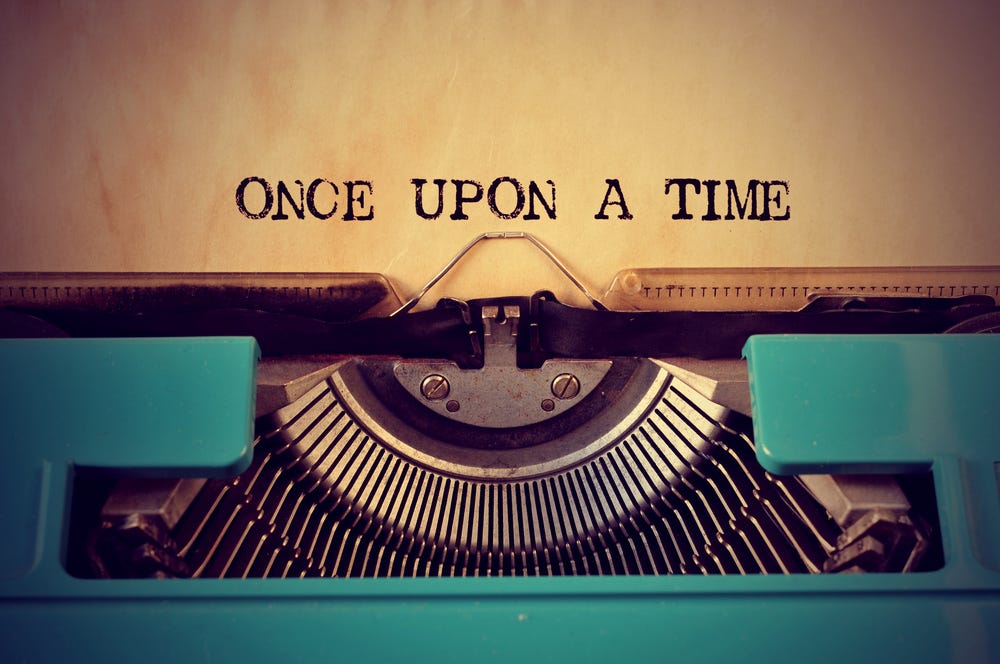E-Pluribus | February 8, 2023
False narratives, cracking up, and instituting new institutions.
A round-up of the latest and best writing and musings on the rise of illiberalism in the public discourse:
Andrew Sullivan: When The Media Narratives Meet Reality
The media love a narrative, in part because latching onto one saves a lot of time and bothersome research. But at his Substack, Andrew Sullivan looks at a few stories recently that don’t reflect well on the ubiquitous “white supremacy” explanation for all that is wrong in the country.
We live in the freest, most multiracial democracy in the history of the planet. Of course traditional prejudices linger, ebb and flow, and the past has helped define the present. But they do not come near to definitively describing the infinitely fascinating interactions between all of us, in every possible combination, our shared humanity, the cross-racial friendships and marriages, our individual personalities, our different upbringings. They cannot account for the extraordinary changes since the 1960s. The transcendence of race and sex and orientation happens all around us every day — and reducing our entire world to these allegedly irreconcilable abstractions of “hate” is a pathological distraction from reality.
And reality is so much more interesting than the dogma the MSM now brings to almost every story, almost every time. You don’t have to ignore racism’s enduring effect in society. But you can see the world in a lens other than the neo-Marxist vision of permanent, zero-sum group-warfare in which some groups are always the oppressor and some the oppressed.
Journalists used to do this — searching for truth rather than enforcing pre-existing narratives, alert to the surprising “specific” more than the predictable “structural” and “systemic”; and be alert to the twists and turns of this diverse culture, rather than constantly returning to history to insist it’s always repeating itself. And you know what? Readers were interested, rather than bored, engaged rather than condescended to — and the press thrived.
Read the whole thing.
Peter Hughes: The Crack-Up
F. Scott Fitzgerald’s writing is full of cautionary tales, but his own life fits the bill as well. At Quillette, Peter Hughes examines Fitzgerald’s essay “The Crack-up” and evaluates it in societial terms for our present day situation.
The French poet Paul Valéry wrote that “a civilisation has the same fragility as a life” and that understanding this fragility is crucial to our individual and collective survival. Every empire, like every life, ends. Our deepest fear at the end of life isn’t the nothingness of non-existence. It’s the horror that there is life after the “end”—that the Self cracks and lives on, crushed, depressed, destitute, shattered into pieces. The same fear haunts collective collapse. Max Horkheimer and Theodor Adorno warned that, “as its final result, civilisation leads back to the terrors of nature”—an afterlife of unspeakable cruelty.
The surprising first step on this path to collapse is prosperity. A civilisation in its infancy, when the benefits of expansion far outweigh the costs, will prosper. However, expansion increases complexity, which requires greater energy and investment to sustain itself. Unable to retreat, civilisations invest more resources expanding, even as marginal returns on this growth keep declining. As the Roman Empire grew, the benefits of conquest declined as administrative and defence costs escalated. Between the third and fifth centuries, this led to increased taxation, increased regulation, expanding bureaucracy, and a debasing of the currency. When the return on complexity became unsustainable, the empire collapsed.
[ . . . ]
Fitzgerald captured the final stage of this struggle in the last words of “The Crack-Up”: “I will try to be a correct animal though, and if you throw me a bone with enough meat on it I may even lick your hand.” Helplessness leads to tyranny when we believe the only choice we have is to disintegrate or submit to tyrannical authority as a way of preserving our sanity and moral righteousness. The effect, however, is to accelerate the collapse of the order we seek to preserve: in its End Times, the crack-up means, as Fitzgerald prophesied, “being an unwilling witness of an execution.” Too late, we discover the head rolling on the ground is our own.
Read it all.
Robert Maranto and Michael Mills: Ending Woke Culture Wars: Different Worldviews Require Different Institutions
While many are working to reform declining institutions, Robert Maranto and Michael Mills make the case at Minding the Campus that, especially when it comes to institutions of higher education, many may be too far gone. In order to get a more diverse offering of worldviews, new institutions (such as the new University of Austin) may be the better way to go.
Recent examples of how critical theory enables abuse can be seen in the many colleges and universities giving up the SAT as a criterion for admissions. Dismantling allegedly oppressive merit systems enables educational institutions to base admissions (and hiring) decisions on personal connections, ideological litmus tests, and the demographic quotas demanded by critical theorists, rather than individual achievement. Not surprisingly, this appeals to the rich and well connected, who can pay to game the system through fake credentials, or even bribe their way in through contributions to college endowments.
Increasingly, critical theory controls the institutions—academia, media, and bureaucracies—while supporters of traditional merit systems and Enlightenment values have far more public support, as shown by the results whenever racial and ethnic quotas come up for a vote in deep-blue states like California and Washington.
The stalemate between the public and the bureaucracy means that this culture war could rage for decades. But it doesn’t have to. By analogy, the history of prior religious conflicts may offer lessons for defusing this one.
[ . . . ]
Given the incompatibility between the values of liberal social justice and critical social justice, it is time for Americans to fashion similar compromises. Those of us who support the former should accept that many elite institutions have been captured by critical theory ideology and that they will not change back any time soon.
Read it all here.
Around Twitter
Maybe at least one thing for all sides to like about President Biden’s State of the Union speech?
From the Congressional hearings featuring former Twitter execs, Rep. Alexandria Ocasio-Cortez tries to maintain the illusion that the New York Post’s treatment in 2020 was totally justified:
And finally, via the Foundation for Individual Rights & Expression, how after almost 250 years, the UK still lags behind its former colonies on “free speech”:









